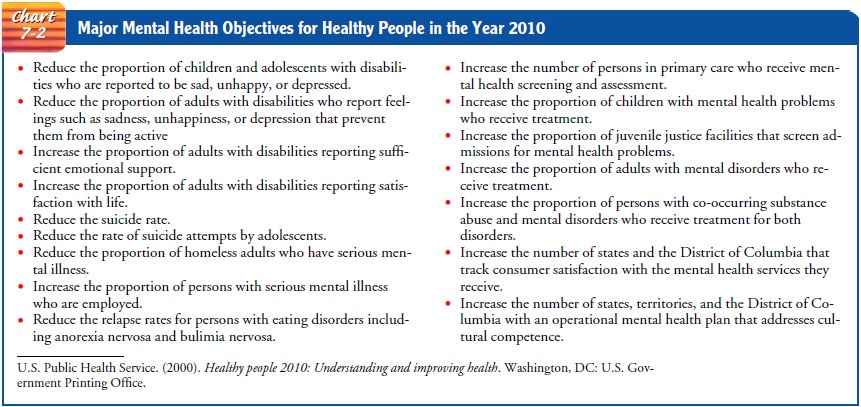Chapter: Medical Surgical Nursing: Individual and Family Considerations Related to Illness
The Brain and Physical and Emotional Health
The Brain and Physical and Emotional Health
Research on brain
structure and function, neurochemical messenger systems (neurotransmitters),
and brain–body connections suggests fundamental, delicate, two-way
relationships between
One
focus of brain research has been to identify and integrate traditional medical
and psy-chiatric knowledge with new psychobiologic and psychoneu-roimmunologic
data. Researchers in the field of psychobiology study the biologic basis of
mental disturbances and have estab-lished some relationships between mental
disorders and changes in the structure and function of the brain. Researchers
in the field of psychoneuroimmunology study the connections between the
emotions, the central nervous system, the neuroendocrine sys-tem, and the
immune system and have established compelling evidence that psychosocial
variables can affect the functioning of the immune system.
As this neuroscientific
research continues, data about neuro-transmitters and the functioning of the
brain will augment exist-ing understanding of emotions, intelligence, memory,
and many aspects of general body functioning. In the future, an accepted
definition of mental illness may well include biologic informa-tion. By
enhancing the biologic knowledge base about the brain and nervous system,
scientists establish the foundation for break-throughs in the treatment of both
symptoms and illnesses.
These findings suggest
that the health care community ought to place as much emphasis on emotional
health as it places on physiologic health and ought to recognize how biologic,
emo-tional, and societal problems combine to affect individual pa-tients,
families, and communities. Some problems that nurses and other health care
providers must address include substanceabuse,
homelessness, family violence, eating disorders, trauma,and chronic mental health conditions such as
anxiety and de-pression. To focus attention on these and other mental health
problems, the U.S. Department of Health and Human Services initiated a mental
health agenda for the nation in the document entitled Healthy People 2010 (U.S. Public Health Service, 2000). The
objectives identified are summarized in Chart 7-2. Nurses in all settings
encounter patients with mental health problems and have an integral role in
helping to achieve the national goals by recognizing and treating emotional
distress and promoting emotional health.

Related Topics